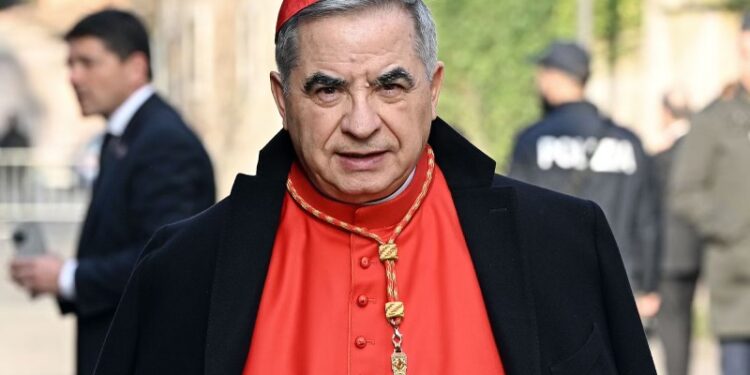In a historic ruling, the Vatican’s criminal court handed down a five-and-a-half-year prison sentence to Cardinal Angelo Becciu, a prominent 75-year-old Italian cardinal and former close advisor to Pope Francis. This landmark case, involving ten individuals, marks the highest-ranking Catholic Church official to face the Vatican’s civil justice system.
The charges against Becciu stem from his alleged involvement in fraudulent financial dealings related to the purchase of a luxurious building in London for 350 million euros between 2014 and 2018. The Vatican’s considerable real estate holdings were the backdrop for this high-stakes case, shedding light on the opaque financial practices within the Holy See.
Despite the prosecution seeking a harsher sentence of seven years and three months, Becciu was also fined 8,000 euros. His lawyer, Fabio Vignone, expressed respect for the verdict but confirmed their intent to file an appeal.
The trial, known as the “Londra real estate” case, exposed the convoluted financial maneuvers orchestrated by Becciu. The court found him guilty of misappropriating 200.5 million dollars from the Secretariat of State funds to a “highly speculative” investment fund led by Raffaele Mincione, who received a corresponding sentence.
In addition to the London property dealings, Becciu was implicated in paying 125,000 euros to a cooperative run by his brother and another 570,000 euros to an intermediary for the release of a kidnapped nun in Africa—an objective that was never achieved.
The Vatican’s criminal court also ordered the confiscation of assets worth 166 million euros from the convicted individuals and mandated the payment of 200 million euros in damages to four Vatican institutions acting as civil parties in the case.
This high-profile trial underscores Pope Francis’s ongoing efforts to reform the Vatican’s financial operations and enhance transparency. Despite the setback, the pontiff’s initiatives to combat fraud and streamline financial practices within the Catholic Church remain a top priority. The ripple effects of this case are expected to prompt further scrutiny of the Vatican’s financial affairs, bringing to light the challenges of navigating the complex intersection of faith and finance within the Holy See.










